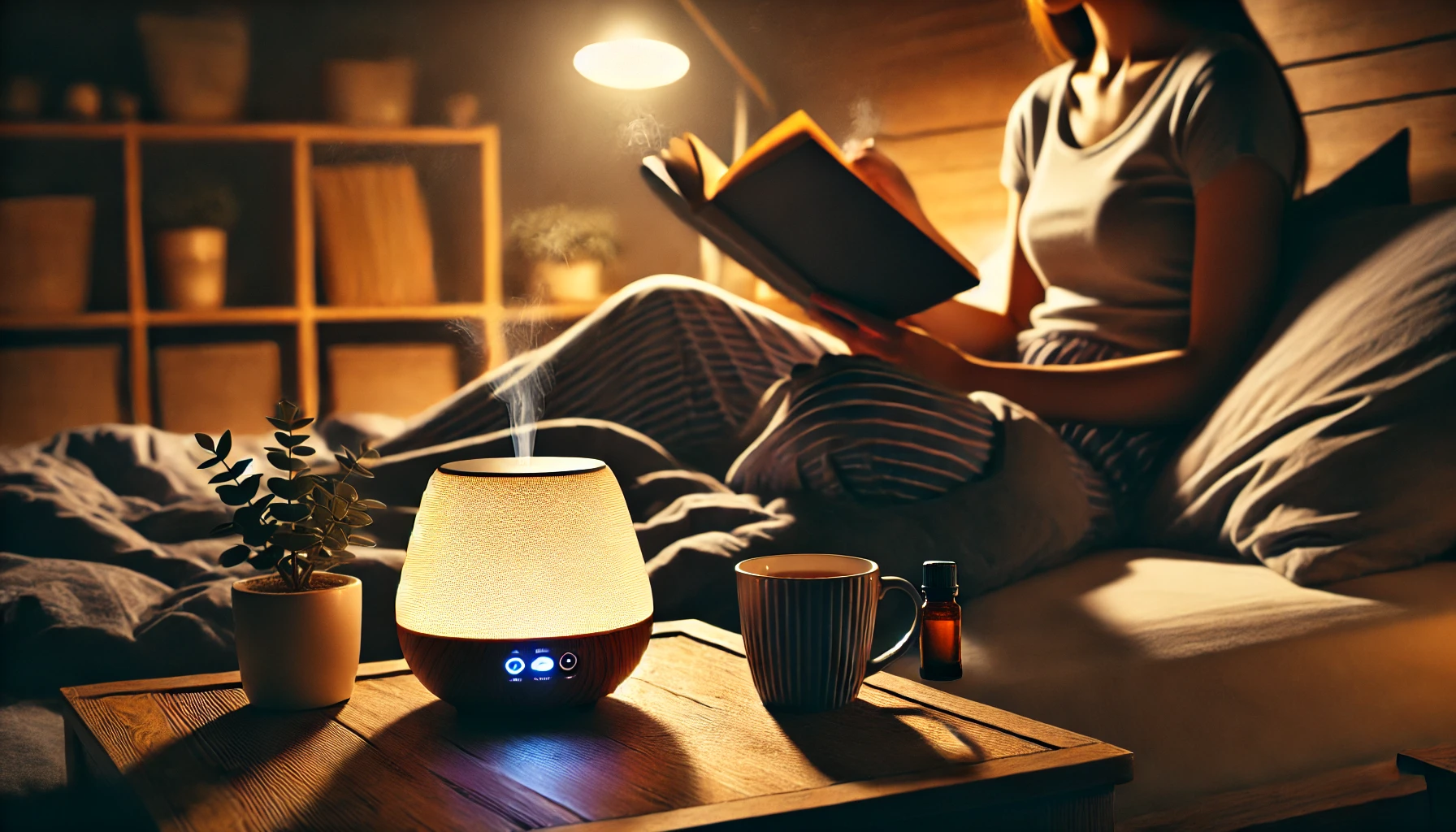A consistent nighttime routine is essential for improving sleep quality and overall well-being. Many people struggle with falling asleep or staying asleep due to stress, screen time, and inconsistent habits. In this article, we’ll explore how to create an effective nighttime routine to promote deep and restful sleep.
1. Set a Consistent Sleep Schedule
Going to bed and waking up at the same time each day regulates the body’s circadian rhythm (internal clock).
How to improve sleep consistency:
- Aim for 7-9 hours of sleep per night.
- Go to bed and wake up at the same time daily, even on weekends.
- Avoid long naps (keep them under 30 minutes).
A regular sleep schedule trains the body to fall asleep more easily.
2. Reduce Blue Light Exposure Before Bed
Screens from phones, tablets, and TVs emit blue light, which suppresses melatonin (the sleep hormone).
Ways to reduce blue light:
- Stop using screens at least 30-60 minutes before bed.
- Use night mode or blue light filters on devices.
- Read a book or listen to calming music instead of scrolling.
Reducing screen exposure improves melatonin production and sleep quality.
3. Create a Relaxing Pre-Sleep Routine
A bedtime routine signals to your brain that it’s time to wind down.
Relaxing activities before bed:
- Take a warm shower or bath.
- Practice deep breathing or meditation.
- Write in a journal or gratitude log.
A relaxing routine helps transition the body into sleep mode.
4. Keep the Bedroom Cool and Comfortable
The ideal bedroom environment promotes deep and uninterrupted sleep.
How to optimize your sleep space:
- Keep the room cool (60-67°F or 16-19°C).
- Use blackout curtains to block light.
- Choose a comfortable mattress and pillows.
A cozy and quiet sleep environment improves sleep quality.
5. Avoid Caffeine and Heavy Meals Before Bed
Caffeine and large meals can interfere with sleep.
Better nighttime habits:
- Stop consuming caffeine at least 6 hours before bed.
- Avoid spicy or heavy foods late at night.
- Choose light snacks if hungry (bananas, yogurt, nuts).
Eating light and avoiding stimulants promotes better sleep.
6. Practice Gentle Movement or Stretching
Light physical activity can help release tension before sleep.
Best bedtime exercises:
- Gentle yoga poses (child’s pose, forward fold).
- Deep breathing exercises for relaxation.
- Progressive muscle relaxation (tensing and releasing muscles).
Stretching and relaxation techniques calm the nervous system.
7. Try Aromatherapy for Sleep Enhancement
Certain scents can help promote relaxation and improve sleep quality.
Best essential oils for sleep:
- Lavender – Reduces stress and promotes deep sleep.
- Chamomile – Calming and soothing for the mind.
- Sandalwood – Helps reduce anxiety and improve sleep duration.
Using essential oils in a diffuser or on a pillow can enhance relaxation.
8. Limit Alcohol and Late-Night Stimulants
While alcohol may make you feel sleepy, it disrupts REM sleep (deep sleep phase).
Better evening drink choices:
- Herbal teas like chamomile, valerian root, or peppermint.
- Warm milk or golden turmeric latte.
- Plain water to stay hydrated without interruptions.
Limiting alcohol and stimulants improves sleep cycle stability.
9. Use White Noise or Relaxing Sounds
Soothing sounds can create a peaceful sleep environment.
Best sleep-friendly sounds:
- White noise or nature sounds (rain, ocean waves).
- Soft instrumental music or guided sleep meditations.
- Fan or air purifier noise for a calming effect.
Listening to relaxing sounds can improve sleep duration and quality.
10. Track Sleep Patterns and Adjust as Needed
Monitoring your sleep helps identify what works best for you.
How to track sleep effectively:
- Use a sleep journal to note bedtime habits and quality of sleep.
- Try sleep-tracking apps or wearable devices.
- Make small adjustments based on how refreshed you feel.
Being aware of sleep patterns helps refine a nighttime routine for better rest.
Final Thoughts: Create a Nighttime Routine for Better Sleep
Good sleep habits improve energy, focus, and overall well-being. By following a relaxing bedtime routine, limiting screen exposure, and creating a comfortable sleep environment, you can wake up feeling refreshed and well-rested.
Start tonight—choose one habit to add to your bedtime routine and experience the benefits of restful sleep!

